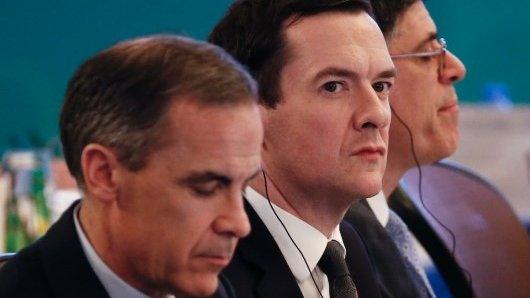EU referendum: Hollande warns of UK exit 'consequences'
- Published
"I don't want to scare you, but I just want to tell the truth" - Francois Hollande
French President Francois Hollande has said he wants the UK to stay in the EU - and warned of the "consequences" for immigration and the economy of leaving.
A French government minister earlier suggested his country could end UK border controls in Calais.
Asked whether he would do this, Mr Hollande said: "I don't want to scare you, I just want to say the truth - there will be consequences."
Leave campaigners have dismissed the Calais claims as "scaremongering".
Speaking to reporters at a summit in Northern France, Mr Hollande said: "There will be consequences if the UK is to leave the EU, there will be consequences in many areas, in the single market, in the financial trade, in development, in the economic development between our two countries.
"It doesn't mean that everything will be destroyed, I don't want to give you catastrophic scenarios, but there will be consequences."
'Conspiracy theories'
He said the change would not put the historic relationship between the UK and France in question - but it would have an impact on "the way we handle the situation in terms of immigration".
Mr Hollande also said unaccompanied children in the Calais refugee camp known as the "Jungle" who have relatives in Britain should be "quickly" reunited with them.
"When these youngsters have a family tie in the United Kingdom, they should go to the United Kingdom quickly and efficiently," said the French president.
Prime Minister David Cameron agreed that the system had to work "better, more speedily".
Mr Cameron announced £17m to help the French authorities deal with the migrants attempting to get into the UK from Calais and Dunkirk. It will be used for security, shelter for migrants and help with returns.
He also announced a £1.5bn investment in a new phase of building advanced Anglo-French drones.
Challenged over Leave campaign claims the Remain camp is relying on "scare" tactics, Mr Cameron said: "When it comes to terrorism, when it comes to security, when it comes to our borders, we are better off, we are stronger inside a reformed EU.
"I will go on making these arguments, drawing on my experience, not making hypothetical claims, dealing with the reality."
He said voters should heed warnings about the risks of the UK leaving the EU from business and world leaders - and accused Leave campaigners of indulging in "David Icke-style" conspiracy theories.
33-year-old Sawar from Iraq said he didn't know where he was going
'Independent nation'
France's economy minister Emmanuel Macron earlier sparked a row when he told the Financial Times, external his country could end UK border controls in Calais.
He also said France would limit access to the single market and try to tempt London's bankers to relocate.
Conservative MP Bernard Jenkin said "propaganda" was "being produced by other European governments at the request of the prime minister to try to scare people away from voting to leave".
He added: "We pay a great deal of money into the EU and it subsidises a great deal of French farming. Surprise surprise, they don't want us to leave the EU.
"But this is a choice for the British people, not for the French government, and actually we're being asked to believe all sorts of ludicrous things."

What are the arrangements with France?
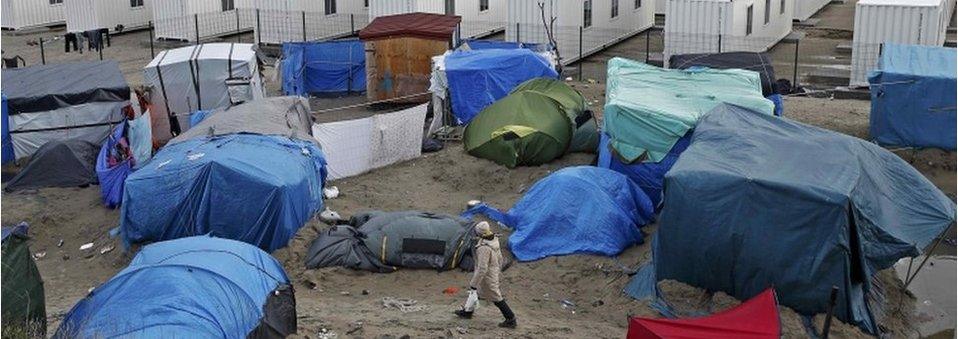
The 'Treaty of Le Touquet' , external was signed in 2003 by then Home Secretary David Blunkett and his French counterpart Nicolas Sarkozy following riots at the Sangatte migrant camp near Calais.
It was meant to ease the pressure on Britain's border force from migrants attempting to board channel tunnel trains. The now defunct Sangatte camp had been set up in 1999 to house thousands of asylum seekers trying to get to the UK through the tunnel.
Under the Le Touquet treaty, French border police have immigration checkpoints at Dover, while the UK has immigration checkpoints at Calais and Dunkirk.
In theory this stops those seeking to reach the UK from doing so without their immigration status being checked first, but this has led to the establishment of a new generation of camps near Calais.

Conservative MP Peter Bone, of the Grassroots Out campaign, said: "If asylum seekers start arriving at Dover, we will send them straight back. As an independent nation, outside of the EU, we will control our own borders whether the French government likes it or not."
The agreement between France and the UK that allows the UK to conduct border controls on the French side of the Channel is a bilateral treaty that is not connected to Britain's EU membership.
It is meant to stop people from travelling across the Channel without their immigration status being checked - but has led to the establishment of the so-called Jungle camp in Calais, where about 4,000 migrants are thought to be waiting to cross.
On Monday, there were clashes as French demolition teams dismantled huts in the Jungle.
France could opt to end the border treaty any time - but the country's interior minister Bernard Cazeneuve has said to do so would be "foolhardy" and cause "a humanitarian disaster".
His colleague, economy minister Emmanuel Macron, gave a different view in his FT interview, saying of Britain's EU membership: "The day this relationship unravels, migrants will no longer be in Calais."
It follows hotly disputed claims by Mr Cameron that migrant camps could move to England if the UK left the EU.

Analysis
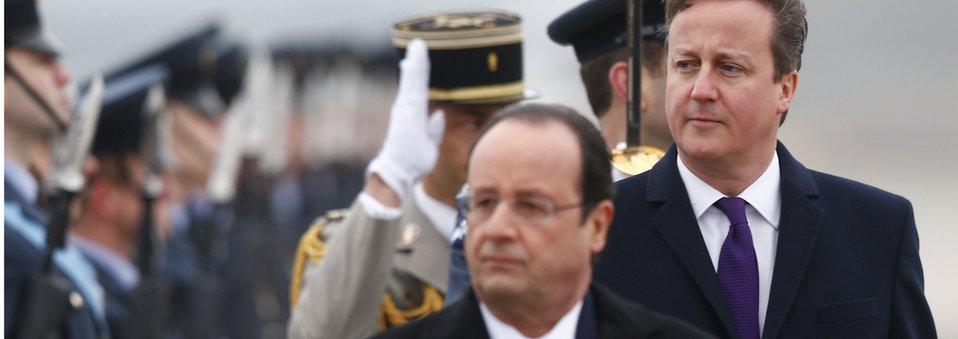
By BBC Paris Correspondent Lucy Williamson
Over the past few weeks, the rhetoric on Calais here has grown louder and more strident.
There is pressure from politicians on both the left and the right to tackle the migrant situation in Calais, and those close to government ministers say that includes those in the Cabinet.
No one has said that a change in policy is currently being discussed, and newspapers this morning suggest Paris isn't currently counting on ending the Le Touquet agreement, but one source with close ties to the government told me there's real concern than a UK exit from Europe will leave France exposed to legal problems over the right to free movement of people within the EU.
Mr Hollande is facing tough opposition from the far right Front National, as he heads towards a presidential election campaign.
But shifting the border back onto British soil could end up encouraging migrant flows through France.

In his FT interview, Mr Macron also stressed that France would roll out a "red carpet" to London's bankers if the UK voted to leave the EU.
He said a country leaving the single market would "not be able to secure the same terms", and the EU's "collective energy would be spent on unwinding existing links, not re-creating new ones".
- Published3 March 2016
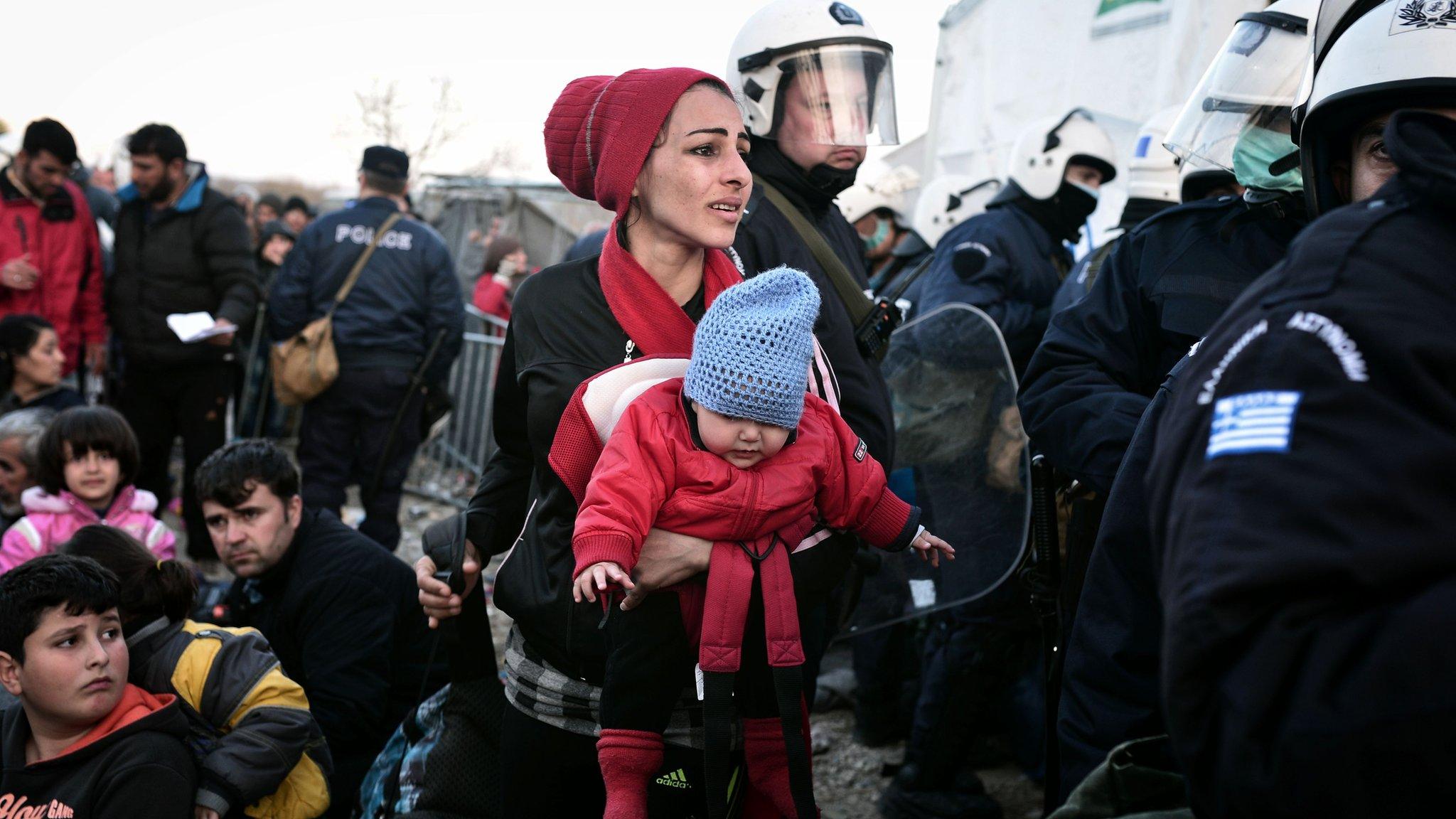
- Published3 March 2016
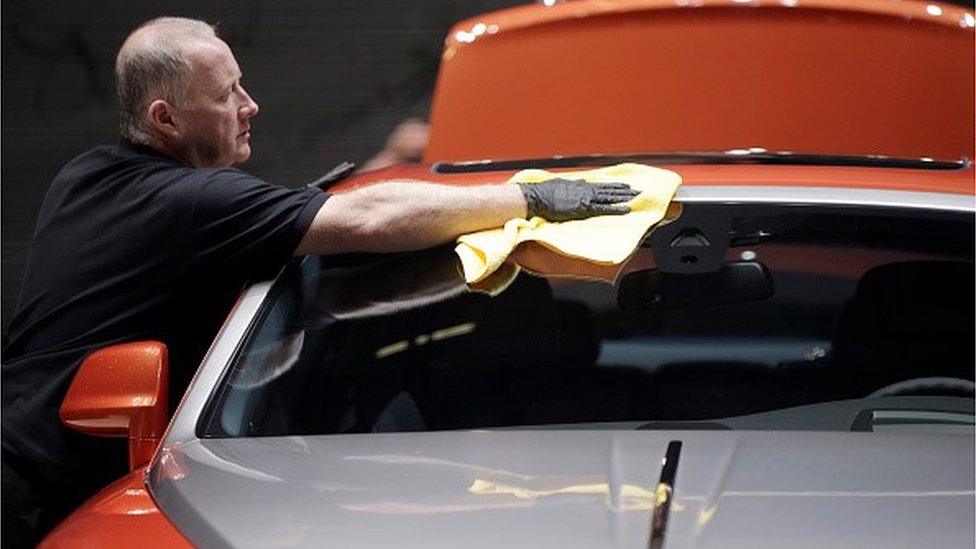
- Published2 March 2016
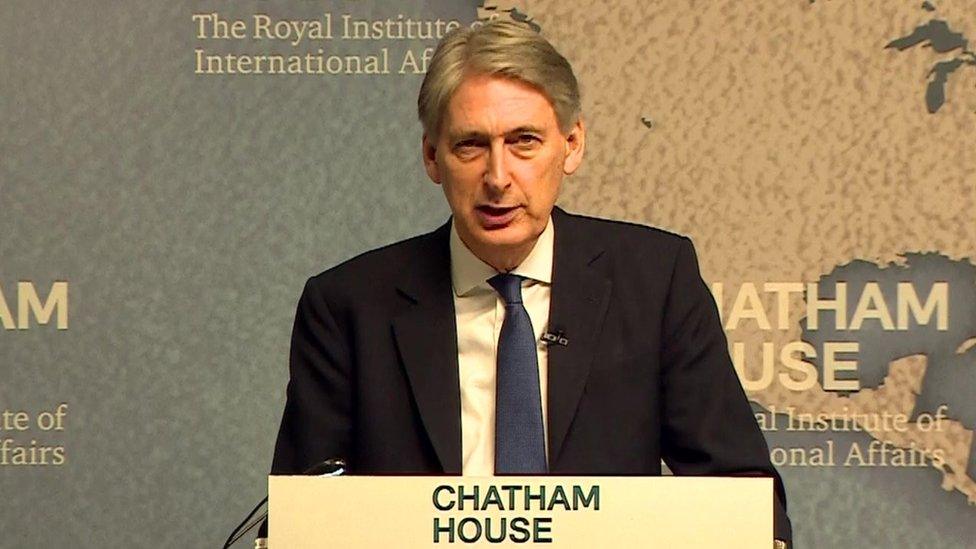
- Published2 March 2016
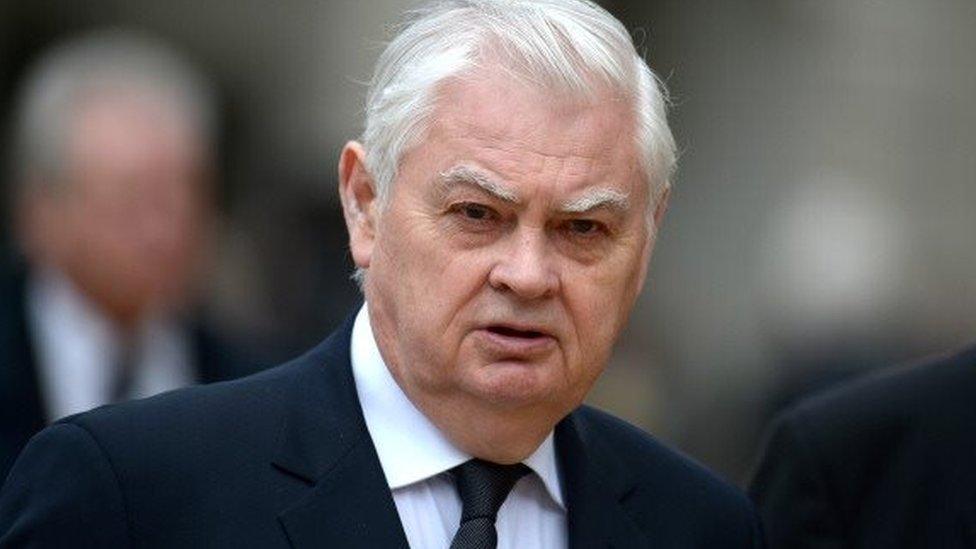
- Published1 March 2016
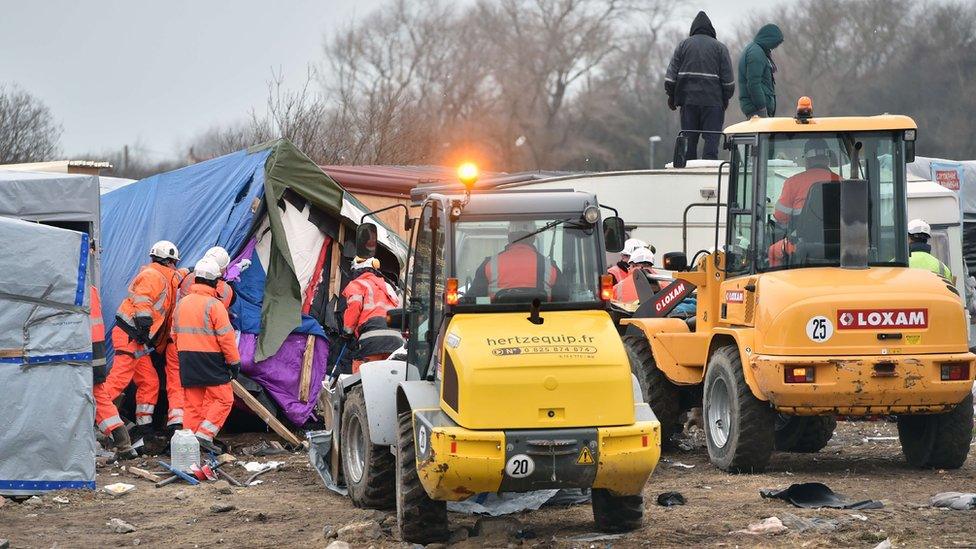
- Published28 February 2016
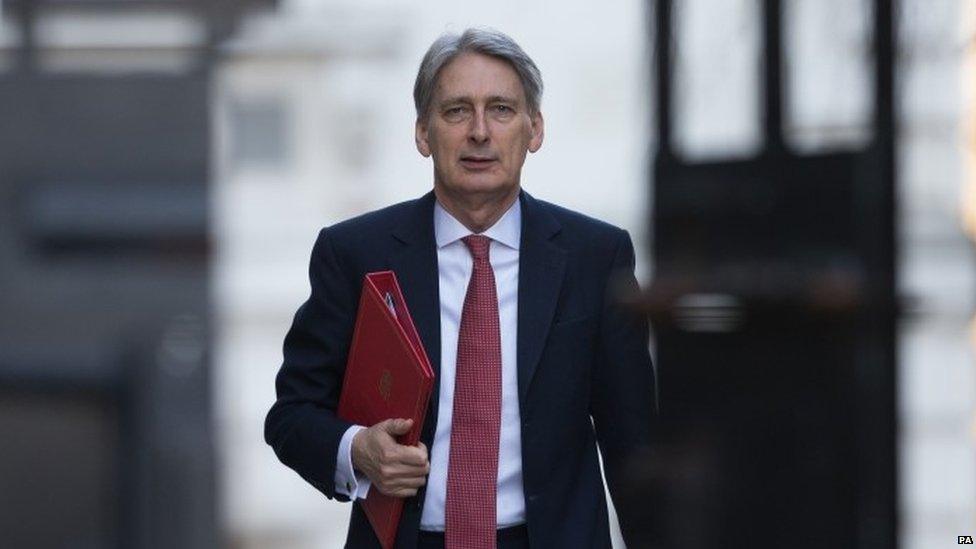
- Published1 March 2016
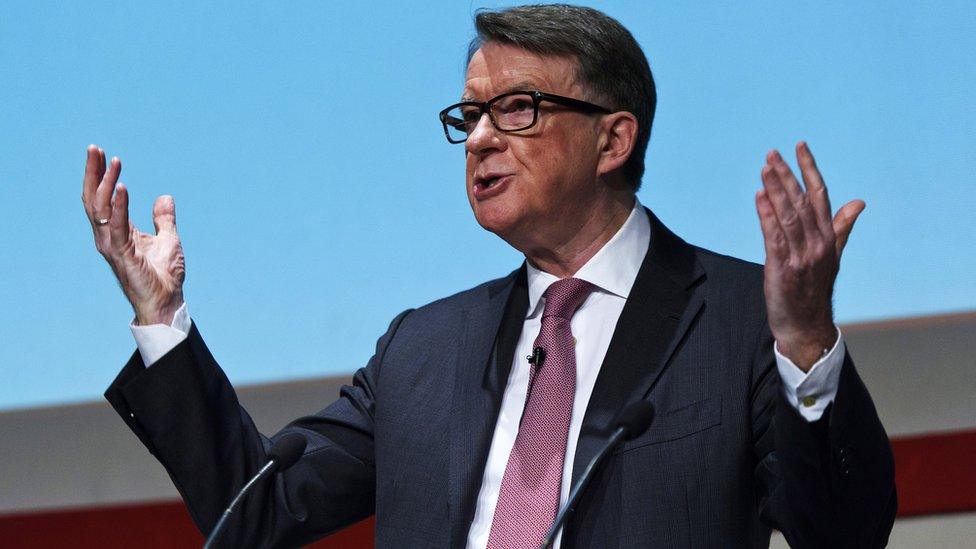
- Published30 December 2020

- Published27 February 2016
